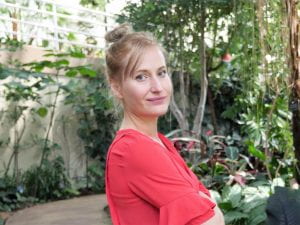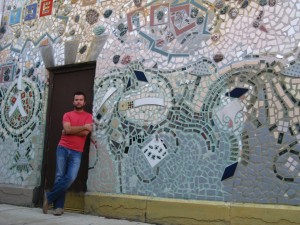Tricia Wachtendorf is a Professor of Sociology and she directs the Disaster Research Center. Over the past two decades, her research has focused on multi-organizational coordination before, during and after disasters, transnational crises, and social vulnerability to disaster events. Dr. Wachtendorf has engaged in quick response field work after such events as the 2001 World Trade Center attacks, the tsunamis affecting India, Sri Lanka (2004) and Japan (2011), Hurricanes Katrina (2005) and Sandy (2012), the Covid-19 pandemic (2020), as well as earthquakes in China (2008) and Haiti (2010). With numerous research grants from agencies such as the National Science Foundation, she has published widely on improvisation in disasters as well as disaster convergence. Her most recent funded research projects examine the temporal nature of household and emergency management decision-making during hurricane events, investigate humanitarian logistics during disaster response, and use a visual sociology approach to explore benchmarks of recovery following the 2011 disaster in Japan.
Sarah DeYoung is an Assistant Professor of Sociology and a Core Faculty Member of the Disaster Research Center. She joins UD after three years at the University of Georgia where she launched the undergraduate program in Disaster Management. She completed her postdoc at UD in the Disaster Research Center and has a PhD from North Carolina State University in applied social and community psychology. She has deployed for research fieldwork for nine major disaster events, including the Nepal (Gorkha) earthquake in 2015. She has been awarded research grants from the National Academies of Science, Engineering, & Medicine, the National Science Foundation, and the Natural Hazards Center. Her research expertise includes evacuation decision-making, companion animals in disasters, infant feeding in emergencies, and refugee well-being.
Victor Perez is an Associate Professor of Sociology with specializations in the sociology of risk, public health and medical sociology, social problems, and survey research. A unifying theme throughout his graduate student and early professorial career is the entwined configuration of health, risk, and society. Currently, his research projects involve a survey of vaccine risk perception, exploring citizen-science alliances dealing with legacy pollution and sea-level rise, and studying how the popular media presents the issue of cancer clusters. He regularly teaches quantitative sociological research methods/social statistics/data analysis, as well as Honors introductory sociology. He is a core faculty member of the Disaster Research Center and an affiliate of the Delaware Environmental Institute (DENIN). He conducts field research on legacy pollution in impoverished areas, water sustainability, and other environmental justice issues.




